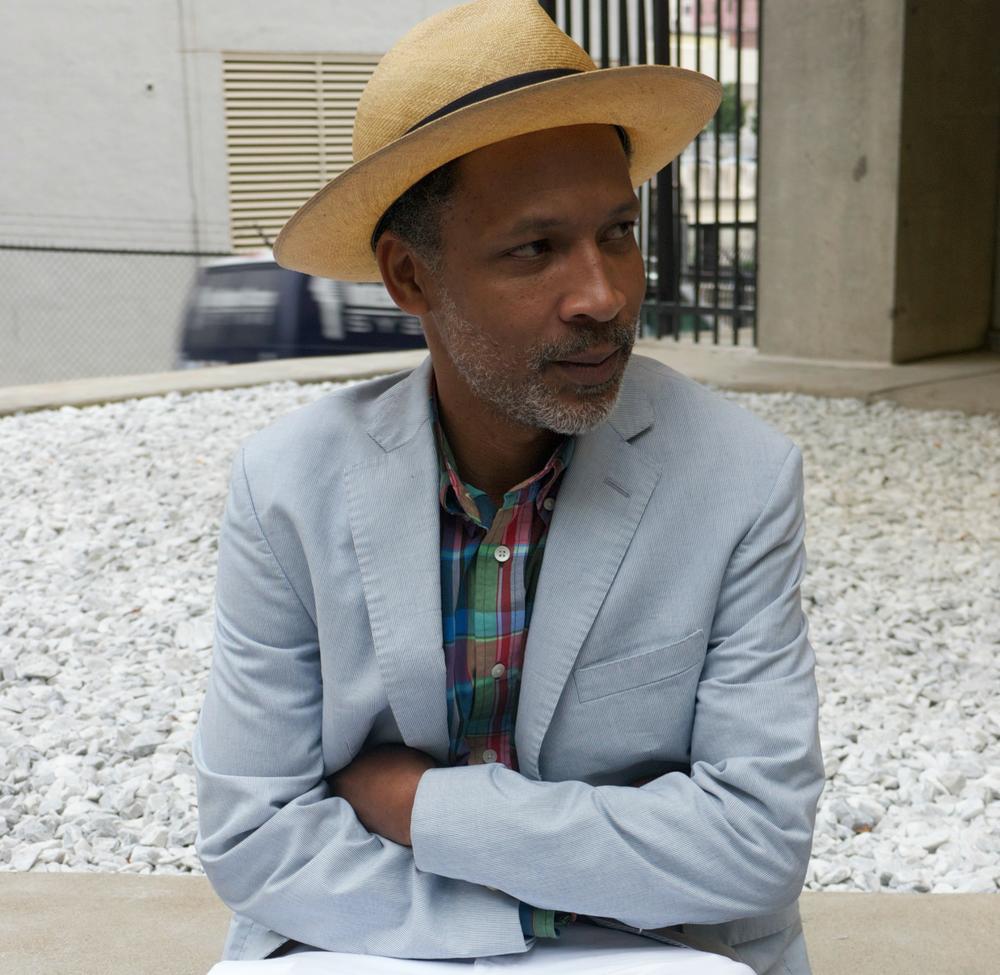
Section Branding
Header Content
Art Against The Wall: Artist Radcliffe Bailey Reflects On The Civil War
Primary Content

This week marks the end of an Atlanta exhibit commemorating the 150th anniversary of the famous Civil War battle that was a turning point in the city. But the Art Against the Wall exhibit at Gallery 72 in downtown Atlanta doesn't just focus on one particular war or time period. GPB’s All Things Considered host Rickey Bevington recently talked with the exhibit's curator, Radcliffe Bailey.
Rickey Bevington (host, All Things Considered): What is the story you’re trying to tell with this exhibit?
Radcliffe Bailey (artist and curator of Art Against the Wall, An Artist Response to Civil Wars): Well, I was asked to curate a show based around the Civil War. And my first thoughts about the Civil War was that, I didn’t necessarily want to get stuck in a time period. {As I} watch the news every day, I see civil wars that are happening around the world. And I’m fascinated with those wars and trying to understand them. And they’re so difficult to understand-- and complex. So, in thinking about the Civil War, I was thinking about civil wars {around the world}. And if I think about the Civil War that happened in the states, I have to also not just think about the time period of slavery, but I also have to think about in the beginning, in that time period, and those civil wars that may have gone on amongst people and their groups in different parts of the world. One of the objects in the show is a coffin from Ghana, which is a representation in the shape of a slave castle. And that actual casket is made for a child.
Rickey Bevington: It’s a powerful coffin. It has pink and purple satin inside the actual location for the child’s body. So, it makes me think it’s possible for a girl. What is a slave castle?
Radcliffe Bailey: I’ve always been interested in points of departure, particularly like in West Africa. And as an African-American, trying to understand identity and realizing that you existed way before the plantations. And there are also groups of people that you are connected to, and a lot of us, we don’t know. Nowadays, we can do things like DNA and trace our lineage. But for a long time, we couldn’t do that. And as an artist, I’ve always wanted to understand my make-up. For me, using a coffin was just that reference point of that time period. And it’s also a part of the show where I deal with death. I also deal with rebirth. And I also deal with conflict.
Rickey Bevington: The city of Atlanta is marking the 150th anniversary of its very famous battle, which was the turning point. What is your reflection on Atlanta then, versus Atlanta now? Or Georgia then, versus Georgia now? Or America, then and now?
Radcliffe Bailey: When I think about that time period, {I think of} Confederate state. And then also, I’m thinking ‘if it wasn’t for that war, I’m not sure we’d be sitting here having a conversation. But, me and a group of friends, we always think about it. And we have these discussions about civil wars. And the one thing… if you need to get rid of something, you burn it. And that’s kind of like the story to me of the city. I think the city has many stories up under the layers of the asphalt…under the cobble. Throughout the woods. Throughout the areas where these things have happened in the past. We go from civil war to civil rights. When I think about the city, the city is for forever changing and growing. And I think some of that past and mistakes may have burnt. And the histories behind them and their resurrecting. All of that I find very interesting.
Rickey Bevington: Well Radcliffe Bailey, thank you.
Radcliffe Bailey: Thank you.
Tags: Radcliffe Bailey, art, Art Against The Wall, downtown atlanta, Civil War, Rickey Bevington
